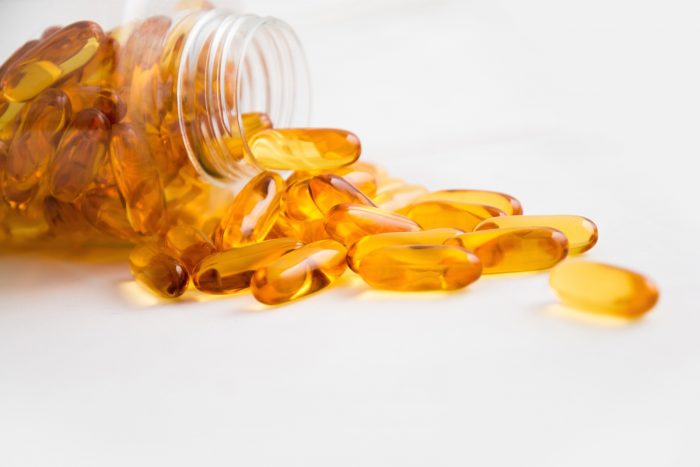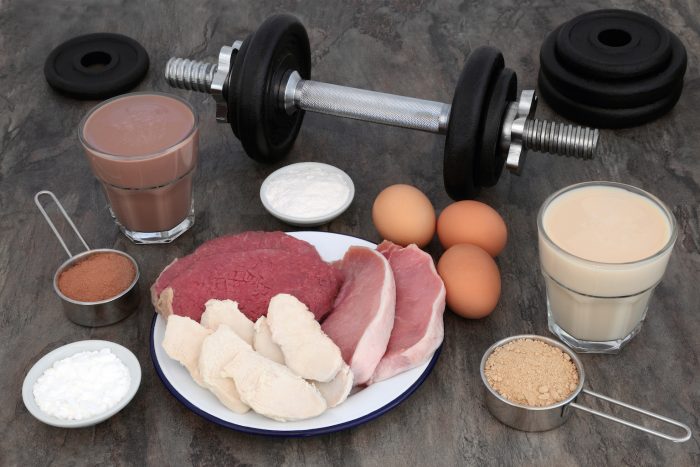Perhaps the most common of the numerous proposed ‘Performance Enhancers’ available, are nutritional supplements – the various pills, powders, and potions that promise extraordinary gains in energy, power, and recovery. A quick browse around your local health food store will reveal literally thousands of different brands and formulas available, with ever more sensational advertisements, packaging, and promotional blurb. One of the more familiar of these nutritional supplements is Creatine. Most regular exercisers and sportspeople have heard of it by now, following the surge in its usage during the 1990s, but what exactly is it, how does it work, and is it of any benefit to squash players?
 Creatine is a naturally occurring compound found within the human body, that is manufactured from the amino acids L-arginine, glycine, and L-methionine. People often falsely think of creatine as a drug, or some kind of a steroid, when actually it is a completely natural substance that we not only manufacture within the body but take in as part of our diet through (mainly) red meats and fish. The vast majority of our body’s total creatine stores are located within our muscles, where it is then used as an important source of fuel for short bursts of powerful high-intensity anaerobic activities such as sprinting and accelerating, of durations up to about 10 seconds. Obviously short, sharp intervals of high effort are an integral part of squash, so creatine should straight away hold interest for those players serious about maximising their potential in this area.
Creatine is a naturally occurring compound found within the human body, that is manufactured from the amino acids L-arginine, glycine, and L-methionine. People often falsely think of creatine as a drug, or some kind of a steroid, when actually it is a completely natural substance that we not only manufacture within the body but take in as part of our diet through (mainly) red meats and fish. The vast majority of our body’s total creatine stores are located within our muscles, where it is then used as an important source of fuel for short bursts of powerful high-intensity anaerobic activities such as sprinting and accelerating, of durations up to about 10 seconds. Obviously short, sharp intervals of high effort are an integral part of squash, so creatine should straight away hold interest for those players serious about maximising their potential in this area.
By supplementing with additional creatine, we can increase our muscle stores which can potentially give us more energy for our high-intensity bursts, and allow us to play longer and train harder.
It is widely used by a number of top-level athletes, with some reports suggesting around 50% of professional athletes use it, with one prominent sports nutritionist Dr John Berardi estimating that around 80-85% of the athletes he works with use it. A number of elite squash players have also mentioned using it, and England Squash have recently started endorsing its use for their young developing professional players.
Put simply, creatine works.
Numerous studies have been done into its use, and the vast bulk of evidence supports the reported performance-enhancing effects of creatine being able to increase maximum muscular power/acceleration, and boost repeat sprint performance – two crucial facets of the overall athleticism required by the squash player. Some studies have also proposed benefits to slightly longer duration endurance performance, though this isn’t as well established as the shorter-term sprint/power enhancements. Creatine isn’t a supplement that gives you an immediate and tangible boost in the way something like caffeine does however but instead takes a minimum of around 5 or 6 days of supplementation to saturate the muscles and to yield its benefits. Creatine supplementation has been heavily influenced by the bodybuilding community, who generally use a 7-day ‘loading phase’ of around 20g to more quickly saturate the muscles, though this has been shown to be unnecessary to those looking for more sporting/athletic gains – total intakes of 3 to 6 grams spread throughout the day have been shown to be equally effective in the longer term.
So what are the negatives to creatine, and why isn’t everyone using it?
A mixture of some potential side effects, personal variance, and plain misinformation still abound.
The main potential side effect comes from the aforementioned bodybuilding influence – weight-gaining.
Creatine can cause noticeable short-term weight gain of several kilograms, which while useful to a point with the lean mass (muscle) gain coming from increased training potential, is not so useful in regards to the water retention effects that creatine can have. This, of course, wasn’t so much of an issue with bodybuilders – indeed, increasing overall mass is usually a primary goal of theirs. Unnecessary weight gain for the squash player, however, can increase workload and reduce efficiency. Thankfully, this weight gain has been shown to be induced primarily by the high loading phases favoured by bodybuilders, and the more standard sub-10g daily intakes for athletes have been shown to result in far less significant bodyweight increases.
Another potential issue with creatine is the difference in individual response.
Some studies suggest up to 20 to 30% of users will see no noticeable improvements, being classified as ‘non-responders’ – it is theorised that one reason for this may be that some people already have naturally high levels and thus don’t receive the same benefits from supplementation. If you are unsure of exactly how well your body is responding when supplementing with creatine, it may be worth carrying out some objective power and repeat-sprint tests to see whether you are receiving any tangible athletic benefits as compared to pre-usage.
The majority of ‘negatives’ associated with creatine however, stem from myths and misunderstandings.
For a number of reasons, creatine supplementation is not generally considered suitable for u18s (more to do with young athletes bodies still being in growth and maturation phases, than any real ‘danger’ as such). For a normal, healthy adult however, there should really be no legitimate safety concerns – creatine is the most studied ergogenic aid in history, and no evidence exists of any serious negative side-effects from things like the oft-rumoured kidney damage when creatine is used in normal dosages (up to 20g per day) in the standard person. As with anything that is being added/removed from the diet, you should always check with your GP if you have any specific concerns regarding the usage of a particular supplement or potentially conflicting allergies, and of course, this should always be standard practice if you have any pre-existing liver/kidney issues. Other occasionally reported side effects of gastric discomfort, diarrhoea, dehydration, and muscle cramps are all unlikely to affect most users however, though there is always some element of personal response to any substance. Drinking plenty of additional water is always recommended when supplementing with creatine, and this will likely also go some way to moderating any small gastric side effects that certain people may experience.
So if you do decide to try creatine as a squash player, the first thing you’ll notice is that are a number of different ‘types’ of creatine available to choose from, including Creatine Ethyl Ester, Buffered Creatine (‘Kre-Alkalyn’), Micronized Creatine, and many more. Most of these various forms are little more than just marketing gimmicks that promise increased absorption and bio-availability, yet there is scant evidence that any of them work any better than the most basic and standardised form Creatine Monohydrate. The vast majority of performance studies into creatine have been carried out with creatine monohydrate, and it is also the cheapest and simplest form of the compound available – a 500g tub of powder can be picked up for around £10 if you shop around (it’s also available in capsule form). As touched on above, it is best taken in dosages of around 5 or 6 grams spread out across the day – so ideally 1.5-2g or so every few hours, during periods of heavy training. Conventional wisdom recommends that creatine is mixed with a high glycemic index carbohydrate (and possibly a little whey protein) when ingested to increase insulin response and thus absorption – mixing into a glass of grape juice or apple juice long being the favoured method.
 My personal opinion on creatine is that it can be a very useful supplemental addition to a sound nutrition and training programme.
My personal opinion on creatine is that it can be a very useful supplemental addition to a sound nutrition and training programme.
There will always be a handful of people that will prefer not to use nutritional supplements and will prefer instead to gain all nutrients from a healthy diet. While it is true that we can get some creatine through our diet however, we only get around 1g a day from meat consumption. This is still considerably below the amount suggested as the optimal daily amount for performance enhancement and doesn’t account for vegetarians who obviously receive far less in their diets. That said, I am still in firm agreement that the base for any athletic training programme should be to get the basics right first – eating right, sleeping right, training right, scheduling right. The sheer volume of positive research on creatine’s effects on athletic performance cannot be ignored, but these effects will still not be as great as optimising the aforementioned diet/training/recovery first – no supplement can allow you to overcome bad habits. I see creatine as very much a ‘plateau breaker’ – get all the foundations right first, and then when performance gains begin to level off, the addition of creatine supplementation can really help push you on and take you to the next level.
Another benefit of creatine supplementation that I haven’t really touched upon in this article, is the exciting research that is showing that supplementing with creatine may actually have a myriad of previously undiscovered other benefits to general health; including helping with depression, protection against neurological disease, cell membrane protective effects, potential anti-diabetic properties, memory enhancement, and improved cognitive ability. Most of these potential benefits are still in various stages of research, but there are some very positive signs coming out that creatine supplementation may actually have many more positive health effects than was previously realised.
Creatine is one of the best-selling performance-enhancing supplements in the world today, with the market being worth 100s of millions every year.
Unlike many other widely advertised performance enhancers (and nutritional supplements in particular) however, there is very strong evidence that it has real positive benefits on performance, and potentially general health as well. It isn’t a miracle magic bullet that will override poor lifestyle/diet/training habits (there is no such thing), but within the structures of a sound training programme, there is excellent evidence to suggest that creatine supplementation can allow you to work harder, train longer, and perform better. For the squash player, that’s definitely something worth considering giving a try.
Gary Nisbet – B.Sc.(Hons), CSCS, NSCA-CPT, Dip. FTST
SquashSkills Fitness & Conditioning Director
Sign up to the SquashSkills newsletter
Get world class coaching tips, straight to your inbox!